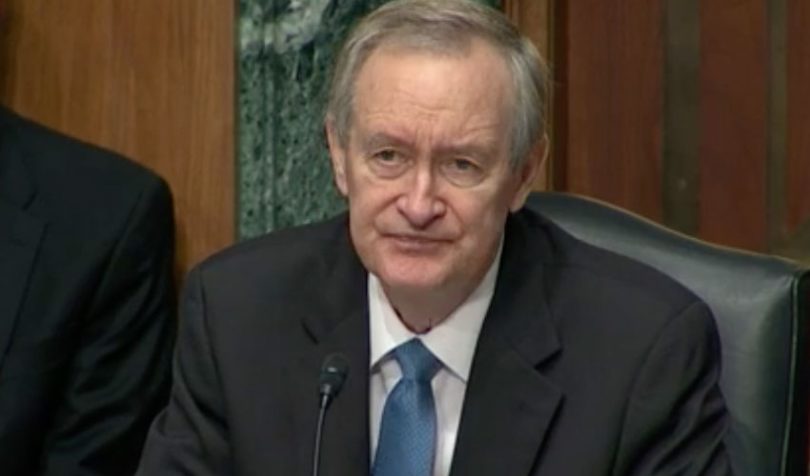Today the U.S. Senate Committee on Banking, Housing and Urban Affairs heard testimony to examine the regulatory frameworks for digital currencies and blockchain. The witnesses separately argued that there’s a need to create a new digital asset class for regulation, that new laws are required to provide certainty, and that cryptocurrencies are not likely to address the needs of the U.S. unbanked and underbanked.
What might regulation look like?
Chairman Crapo asked an excellent question. “How can the U.S. develop a more comprehensive approach to digital currency and blockchain regulation while still acknowledging the unique aspects of different projects?”
Jeremy Allaire, CEO of Circle and representing the Blockchain Association, said: “Many of these digital assets do not easily fit classifications that we’ve had in our financial system.” He observed there’s an attempt to categorize digital assets based on current groupings such as currencies, commodities or investment contracts.
“Many digital assets have features of all three. It’s what makes digital assets I think very innovative,” said Allaire. He believes one of the first steps for regulators is to distinguish between the different types of digital assets.
Allaire grouped them as non-sovereign digital currencies which should be regulated as commodity monies, different types of tokens on blockchain platforms, and stable coins. He sees serious problems with classifying most tokens as securities which is driving them offshore. The Circle CEO also highlighted the need for special regulations around custody, given these are bearer instruments.
Senator Warner asked about the regulator for digital assets. Allaire had requested a single regulatory authority, whereas currently there are many. But Warner pressed him about whether there would need to be an entirely new regulatory framework or if he could suggest one of the existing regulators. Allaire said he wasn’t an expert on the efficacies of the different regulatory agencies.
Do digital assets really help the unbanked?
Senator Brown questioned the motivations behind cryptocurrency companies to improve financial inclusion. Senator Schatz echoed the same sentiment. “When tech executives and their funders talk as though all of societal ills will be solved by a new code, you will forgive us if we are little bit skeptical about all of that.”
Witness Professor Baradaran from the Irvine School of Law, has written multiple books about financial inclusion. She pointed out that the justification behind the subprime market was to provide access to credit. Talking about cryptocurrencies, she said: “It doesn’t matter what technology undergirds it. What matters is the risks presented by this. There’s nothing about the blockchain that diminishes these risks.”
She also doesn’t see cryptocurrencies helping the underbanked. “They need a safe and secure place to store their money. And usually people want something old and dusty like a bank as opposed to some new startup to invest all their live savings in,” said Baradaran. The Professor argued what’s really needed is better access to ATMs in rural areas and real-time digital payments. In the latter case, this would reduce the need for costly overdrafts and payday loans which are used while paychecks clear.
The Federal Reserve is currently considering a faster payments service, and Senator Brown and others are drafting legislation to try to speed up the process.
The third witness, Rebecca Nelson, a specialist in international trade and finance, spoke about regulation in other countries. She argued that many of the companies are not trying to evade regulation; what they are looking for is clarity rather than the current uncertainty.
In general most of the Senators seemed to acknowledge that digital assets are here to stay. Some were more muted. Senator Warren commented “I do believe blockchain and distributed ledger technology has great potential. I’m a little intrigued that we’re basically ten years almost into this. And even in countries that have not had the regulatory oversight we’ve had, we’ve not really seen a full breakout.”







